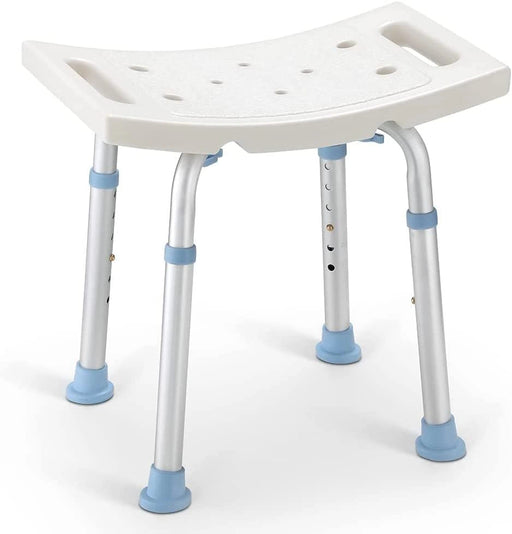Something Seniors must Know about Long COVID or Post-COVID
What Exactly is Meant By the Terms "Long COVID" And "Post-COVID"
SARS-CoV-2, the virus that produces COVID-19, usually allows a complete recovery in a matter of days to weeks in most patients.
However, for those with long COVID (also called post-COVID), symptoms may persist for months or even longer after the original diagnosis.
 After a few weeks, some individuals who have recovered from COVID-19 may have a recurrence of existing symptoms or the onset of new ones. Individuals who initially had no signs of infection may do so at a later time.
After a few weeks, some individuals who have recovered from COVID-19 may have a recurrence of existing symptoms or the onset of new ones. Individuals who initially had no signs of infection may do so at a later time.In fact, COVID-19 may cause long-lasting effects regardless of how serious the infection is.
Symptoms of Long COVID or Post-COVID Among Seniors
Compared to one out of every five persons between the ages of 18 and 64, one out of every four elderly individuals who have recovered from COVID suffered at least one of the 26 prevalent symptoms linked with post-COVID, according to the findings of research that was published by the CDC in recent days.
Elderly folks who've already recovered from COVID-19 are more susceptible than younger individuals to have chronic symptoms such as tiredness, dyspnea, muscular pains, irregular heartbeat, migraines, joint stiffness, and trouble with memory and attention. According to research, these issues all can be connected to long COVID or post-COVID.
How Can Seniors Prevent Long COVID or Post-COVID?
There are mainly two ways:
1. Get vaccinated
Getting all of the vaccines that are offered for older adults is one of the most important things you can do to lower your risk of long COVID or post-COVID.

The vaccination not only lessens the likelihood of getting COVID-19 but there is also proof to suggest that vaccination lowers the chance of developing post-COVID among those who have already caught COVID-19.
2. wear mask
However, this does not completely eliminate the danger of long COVID, and studies conducted in the United States show that the risk could be still high among elderly people who already get vaccinated.

Therefore, it is a smart option to attempt to decrease the vulnerability to COVID that older adults have by taking measures such as using a face mask rated FFP2 or FFP3 in crowded areas.
What Should Seniors Do If They Already Had Long COVID or Post-COVID
1. Seek medical attention
If an elderly individual or their caretaker notices that something is wrong a month or two after COVID, such as significant weight loss, severe weakness, or forgetfulness, it is important to get checked out. Unfortunately, many primary care doctors lack the knowledge to properly diagnose and treat post-COVID.
If your primary care physician isn't helping much, you may want to consult a specialist or visit a clinic that treats people with post-COVID. You should also be ready to wait patiently: A long time is required to schedule an appointment.
2. Pursue comprehensive care
Firstly, doctors will make sure that their elderly patients' chronic diseases like heart problems and COPD are under treatment. They also look for any unforeseen health problems that might have emerged after the COVID infections.
The emphasis then shifts to assist the elderly in regaining their independence in performing activities of daily living such as bathing, dressing, ambulating inside the home, and going to the store. Rehabilitation might take the form of physical treatment, occupational therapies, or psychological restructuring and often lasts for a number of months.
3. Become active gradually
Deconditioning is the loss of endurance and fitness that occurs in elderly individuals after a severe disease; in only a short time, their blood volume and cardiac contractions will begin to decrease if they remain inactive.
When you get up from sitting, you may feel dizzy or your heart may start to race. Restart your fitness routine by riding a recumbent bike or rowing machine for 5-10 minutes, and gradually work your way up to 30 minutes.
Start off riding upright, then after several weeks switch to a semi-recumbent posture. After several more weeks, start walking, slowly increasing the space you cover.
Elderly folks with cognitive difficulties following COVID should heed this "go slow" advice as well. In order to maintain mental alertness and memory, experts advise cutting down on the amount of time being spent on mentally taxing activities and engaging in physical activity.
4. Reset expectations and prioritize
Recovery from severe sicknesses, such as COVID, is often more challenging for seniors. Actually, several weeks or months afterward, even older adults who had only mild or moderate symptoms of the infection might have difficulty recovering.
It should be aware that long COVID or post-COVID has greatly hastened the process by which individuals must reevaluate their hopes and goals after each major health crisis. It is crucial to get the skill of prioritization and understand not to take on too much at once.
Summary: Living with Long COVID or Post-COVID
Everybody who goes through Long COVID or Post-COVID may find it difficult, but it poses a particularly high risk for those who are older. A post-COVID condition may be hard to cope with, particularly when there are no quick solutions or treatments.
However, senior individuals who are having post-COVID issues can seek therapy from a healthcare practitioner in order to develop a personalized medical treatment plan that may assist in the healing of their symptoms as well as their standard of living.
Older adults may also get relief from the symptoms of post-COVID by reviewing the guidelines we listed above. Furthermore, a number of support groups for elderly patients and the caregivers who assist them that are now in the process of being created online.
Recommend Products
-
 Sale
Sale
Standard - 300LBS Capacity Shower Stool
Original price $51.99From Original price $29.99Original price $51.99Current price $29.99From $29.99Current price $29.99OasisSpace Medical Square Shower Stool for Bathtub OasisSpace Square Shower Stool for Bathtub is approved as the highest standard(FDA) for medical...
View full detailsSaleOriginal price $51.99From Original price $29.99Original price $51.99Current price $29.99From $29.99Current price $29.99


